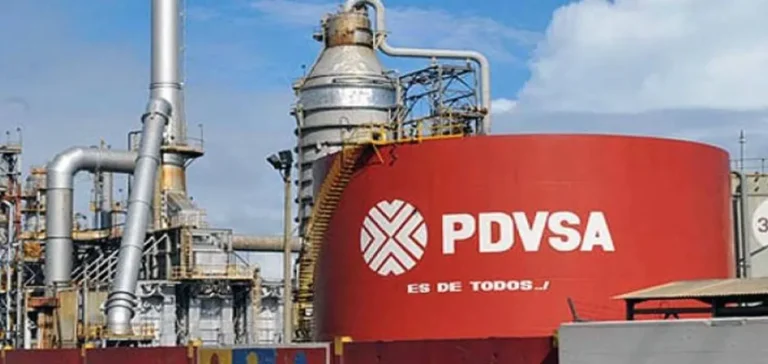Petróleos de Venezuela S.A. (PDVSA), the national oil company, generated $17.52bn (EUR16.20bn) in revenue from its export sales during 2024, according to internal results reviewed by Reuters on July 11. The evolution of foreign sales is mainly explained by the increase in export volumes authorised by the granting of temporary licences to several foreign companies, including Chevron Corporation, in a context of U.S. sanctions in force since 2019.
Increase in exports and partial recovery of production
The volumes of crude oil and petroleum products shipped abroad by PDVSA averaged 805,500 barrels per day (bpd) last year, up more than 15% compared to 2023, when the average was nearly 700,000 bpd, according to internal data shared with Reuters. Overall production also increased, reaching an average of 952,000 bpd for all of 2024, compared to 783,000 bpd in 2023 according to the Organization of the Petroleum Exporting Countries (OPEC).
The improvement seen in exports comes at a time when PDVSA had not published annual figures since 2016, making it difficult to accurately compare with previous years. Despite this rebound, production remains significantly lower than the historic levels reached before the investment crisis and the introduction of international sanctions.
Impact of U.S. licences and changing export destinations
Since 2023, licences granted by the United States government to Chevron Corporation and other foreign groups have enabled a partial recovery of Venezuelan oil operations and exports. However, this dynamic slowed in May 2025, when Washington announced the revocation of licences allowing the export of Venezuelan crude to North American and European refineries. June figures indicate exports of 844,000 bpd, mainly destined for China, according to shipping documents reviewed.
President Nicolás Maduro and the Venezuelan government attribute the difficulties in the oil sector to external sanctions, which they describe as illegitimate measures and an “economic war”. Despite these constraints, the authorities highlight the continuation of exports and production, which exceeded the one million bpd threshold in the first quarter of 2025, according to the same sources.
Outlook and official reactions
The Venezuelan Ministry of Petroleum and PDVSA did not respond to requests for comment on these results. The report notes, however, that the increase in sales remains closely linked to the temporary easing of the sanctions regime. According to Venezuelan authorities, the sector’s resilience relies on redirecting flows to Asia and optimising available assets despite a restrictive environment.
According to figures communicated to Reuters, the trend seen in 2024 illustrates PDVSA’s adaptation to a commercial environment marked by high market volatility and an evolving international regulatory framework. June shipments demonstrate the company’s ability to redirect its exports to new markets while maintaining stable volumes.






















